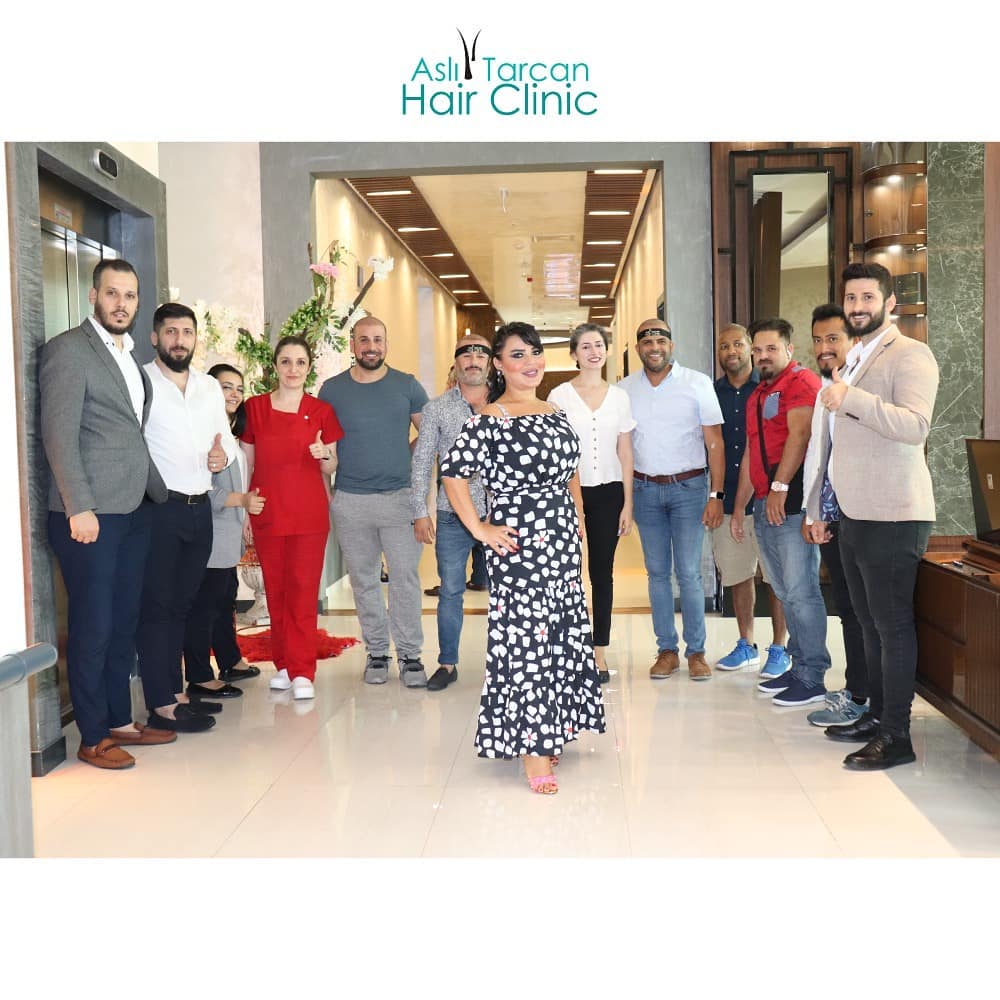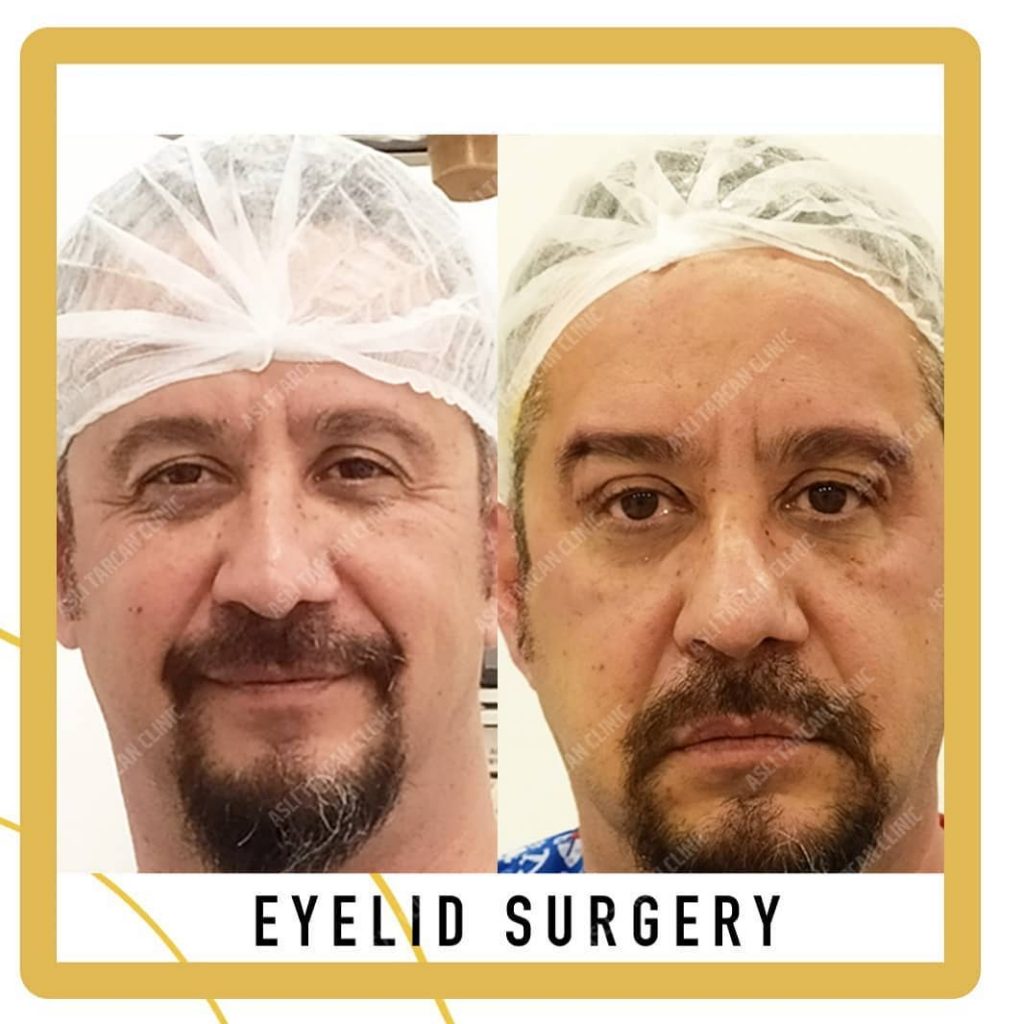
Eyelid Surgery In time, due to gravity, genetics, sun exposure, and some other factors, the skin around our eyes may get wrinkly and saggy. That kind of changes can make your face look older than you actually are, and give you a tired look. Eyelid Surgery (Blepharoplasty) or eye lift is a facial plastic surgery procedure that is done to smoothen and rejuvenate the skin around the eyes. The surgery can be done both for cosmetic and functional concerns as the sagging eyelid can block the person’s vision. It is an easy procedure that results in your having a younger-looking face.
When You Should Consider Having an Eyelid Surgery
If you have sagging skin above the eyelid that affects your vision or if your eyelids appear swollen, you can consider having an eyelid surgery. Also, having bags under the eyes, the lower eyelid’s being droopy, and having wrinkles around the eyes can be good reasons for having an eyelid surgery too. If you have a visual impairment or some conditions that can affect the recovery process after the surgery, you are not suggested to have an eyelid surgery.


Consultation Process
The consultation appointment is for an information trade between you and your surgeon. You can learn whatever you want to know about the procedure from your surgeon and your surgeon will ask you what you expect from the surgery, your former surgeries, allergies, medications or supplements and if you have any trouble with your eyes. As a candidate, you have the right to know everything about the surgery you are going to undergo, so you should ask literally everything about the procedure that leaves a question mark in your mind to your surgeon without hesitation.
Your surgeon will also assess your situation and may ask for a blood work. He or she may take some photographs that you can use for before and after comparison after the recovery. He will tell you about the risky sides of the procedure that you should know and determine the type of anesthesia (local or general anesthesia).
Here are some questions that you can ask your surgeon about the procedure;
- Are the results that I anticipate realistic?
- What kind of anesthesia will you use?
- How much should I pay?
- What are the risks of the procedure?
- Does the medication or the anesthesia have any side effects?
- Can you show me the before and after photos of the surgeries you have carried out before?
- What happens if the results do not turn out as I expected?
Risks That You Should Keep In Mind
Even though all the necessary measures are taken before all surgery procedures, sometimes misfortune still happens. To minimize the risks, both before and after the surgery, you should precisely follow the instructions about health care and medication that your surgeon will give you. You will be informed about all these risks in the consultation appointment and the procedure will go on on your consent. The risks are;
- Anesthesia-related problems
- Bleeding
- Hematoma
- Infections
- Eye dryness
- Sensitiveness (for the bright lights)
- Closing the eyes may get difficult
- Lower eyelid’s folding out
- Changes in vision
- Blindness
- Constant pain
- Numbness
- Scars that look bad
- A necessity for another surgery
Preparation For An Eyelid Surgery
First of all, you should arrange someone to take you home after the surgery, as you will both be on anesthetic and your eyes will be covered. Also having someone near you during the day and the night of the surgery will help a lot. You should keep ice packs, gauze pads, eye drops, clean towels and painkillers within reach at home. After the necessary examinations are done and you turn out to be suitable for the procedures (the surgery does not pose any risk to your health), your surgeon will ask you to stop smoking and taking some certain medications a few weeks before the surgery as they may interfere with the recovery process and cause excessive bleeding. You should also stop drinking or eating at a determined time before the surgery.
Eyelid Surgery Procedure Step by Step
During an eyelid surgery procedure, the steps below are followed;
- Anesthesia: Your surgeon will determine if a local anesthesia or a general anesthesia will be used beforehand. Generally, local anesthesia around the eyes is used. In order not to make the patient feel any pain during the surgery, the procedure starts with anesthesia.
- Incisions: The incisions for an eyelid surgery are located around the natural folds of the eyelid so when they heal, the marks will not be visible. For the lower eyelid, the incision goes along the eyelash line.
- Removal or Repositioning of Fat and Tissues: Through the incisions, the surgeon will remove or reposition the fat, and remove the excess skin if necessary.
- Closing the Incisions: The incisions are closed with very small sutures and skin adhesives. The sutures need to be removed in a week.
- Recovery
Postoperative Period
When the anesthesia’s effect goes down, you can walk with the guidance of a healthcare professional. Your surgeon will decide if you need to stay overnight in the hospital. Before you are discharged, you will be informed about when you can start working again, when you can start exercising again and with what intervals you should go back to the hospital for follow-up care.
After the surgery, you may have swellings around your eyes, and you may feel some discomfort, but do not worry, these are casual symptoms that are expected to occur, and will heal in a few weeks by themselves. During the recovery period, you can apply cold compresses around the eyes to relieve the aching. Generally, patients feel a small pain, but your surgeon will be aware of that and will prescribe you pain killers that will not interfere with your healing process. You can experience dry eye and itching around the operated area. You need to protect the operated area from sun exposure, so make sure you have sunglasses with you when you go out. Your surgeon will give you instructions about the medication you should take, how you should take care of your eyes while avoiding infections and your general health care. Also, if your surgeon stitched the incisions with non-dissolving sutures, you should get them removed a week after the surgery. In order not to cause any complications, you should follow your surgeon’s instructions precisely. Make sure those instructions include information about;
- When will the sutures need to be removed (or do they need to be removed at all)
- When can you start working and exercising, basically your normal life
- What kind of medication will be prescribed and how you should use them
- What kind of medication should you avoid
How Much Does An Eyelid Surgery Cost?
Insurance companies generally do not cover eyelid surgeries. However, if the reason you get the eyelid surgery is for functional reasons rather than cosmetics, you can confirm that with a vision test and get your surgery covered by the insurance. In the United States, an estimated average cost for an eyelid surgery is 3.300 Dollars. The cost that is charged in European countries is nearly the same as the United States. However, anesthesia, surgery room and other related expenses are excluded from this number. So, during the consultation, make sure you learn exactly how much you will have to pay for the procedure. Also, as the surgeons have a different amount of experience, the fee they charge can differ, so if the surgeon you chose charges a lower or higher amount for the procedure, it is quite normal.
Results Of An Eyelid Surgery
Like all other facial plastic surgery procedures, you should have realistic expectations from the results of the surgery. Right after the operation, the final result of the surgery will not be visible. It may take weeks for swellings and edema to go down and make the actual result appear. So you should not rush deciding that your surgery was not successful. It will only make you disappoint and you will feel like you wasted your money and time on the surgery for nothing.
Although the results of the eyelid surgery procedure are long-lasting, as the aging process will continue, your skin will lose more elasticity in time, so in order to make the results even more long-lasting, you should take care of your skin well, eat a diet that contains healthy foods, stay hydrated and most importantly, be careful about the sun exposure. If the skin gets saggy again, rather than having an operation in the same area again, having a forehead lift is preferred by many.
Generally, results turn out to be satisfactory when the recovery completely ends, but in some cases, the desired look may not be achieved and the situation may necessitate another surgical procedure. So as not to cause any complications and make the results the best, follow the instructions that are given by your surgeon for the postoperative period very carefully. Avoid incisions to be damaged (try not to touch your eyes when they are irritated for example) and use the medication carefully, without causing infections.
Eyelid Surgery’s Psychological Effects
Along with solving people’s problems with their appearances, eyelid surgeries can solve their mental problems too. One’s seeing himself or herself as the way he wants to be, helps a lot with his mental health. People with aesthetical problems may be reluctant to go out, join social events and be less active in their work. The people who suffer from droopy eyelids or bags under the eyes can turn into another person both physically and mentally after the eyelid surgery. It is reported that people who undergo eyelid surgeries have higher self-esteem after the procedure and have more steady lives. As long as they do not turn the facial plastic surgeries and other types of aesthetical operations into an addiction, an eyelid surgery may have a major positive effect on one’s life.
Frequently Asked Questions About Eyelid Surgery
Here are some questions that eyelid surgery candidates ask frequently:
Q: Why should I have an eyelid surgery?
A: To get rid of the bags under the eyes and droopiness of the upper eyelid. In this way, your face will look younger and you will look less tired.
Q: Will the eyelid surgery enhance my ability of sight?
A: If your sight is blocked by the droopy skin of the eyelids, then the surgery will enhance your ability. But if you have any other condition related to the sight, you should have an appointment with an eye doctor rather than a plastic surgeon.
Q: Does the surgery take a lot of time?
A: The eyelid surgeries generally take around two hours. But that can vary according to the situation.
Q: Will I have to stay in the hospital for the night?
A: For eyelid surgeries, the surgeons generally use local anesthetics, so there will no need for you to stay in the hospital for the night unless any complication occurs that will cause you to be under the surgeon’s surveillance. But you are suggested to arrange someone to drive you home after the surgery.
Q: How long will the recovery take?
A: From person to person, the recovery period’s duration changes. Generally, it takes around one month, but based on your routines, diet, medication, genetics, it can take longer.
Q: What kind of side effects does having an eyelid surgery have?
A: Your surgeon will instruct you what to do or what not to do to avoid experiencing the complications. The most common side effects are swellings, bruises, light sensitivity, and lacrimation. Your surgeon will prescribe you the necessary medication (eye drops and creams) to avoid or minimize the discomfort.
Q: Is the surgery covered by health insurance plans?
A: Generally, eyelid surgeries are done for cosmetics, rather than functional reasons. Most health insurance plans do not cover cosmetic operations but if your reason for having an eyelid surgery is because it will make your sight better, than you may make an agreement about the condition with the insurance company.


